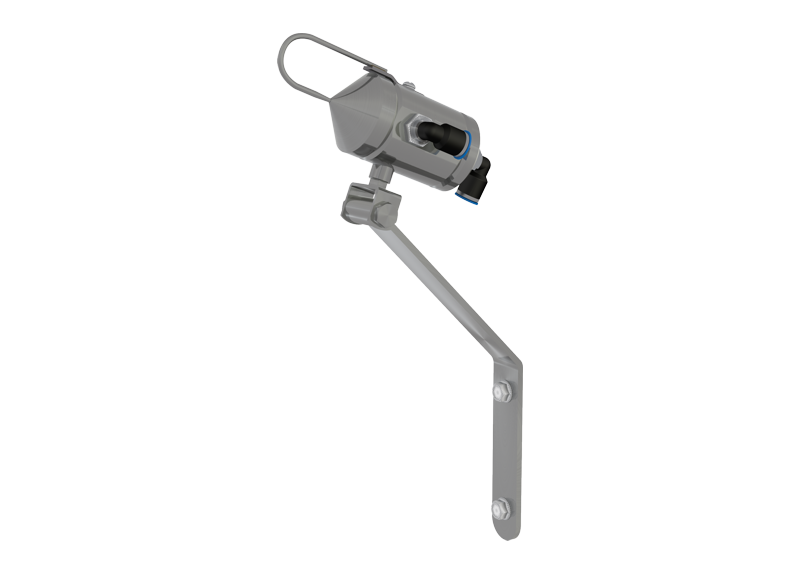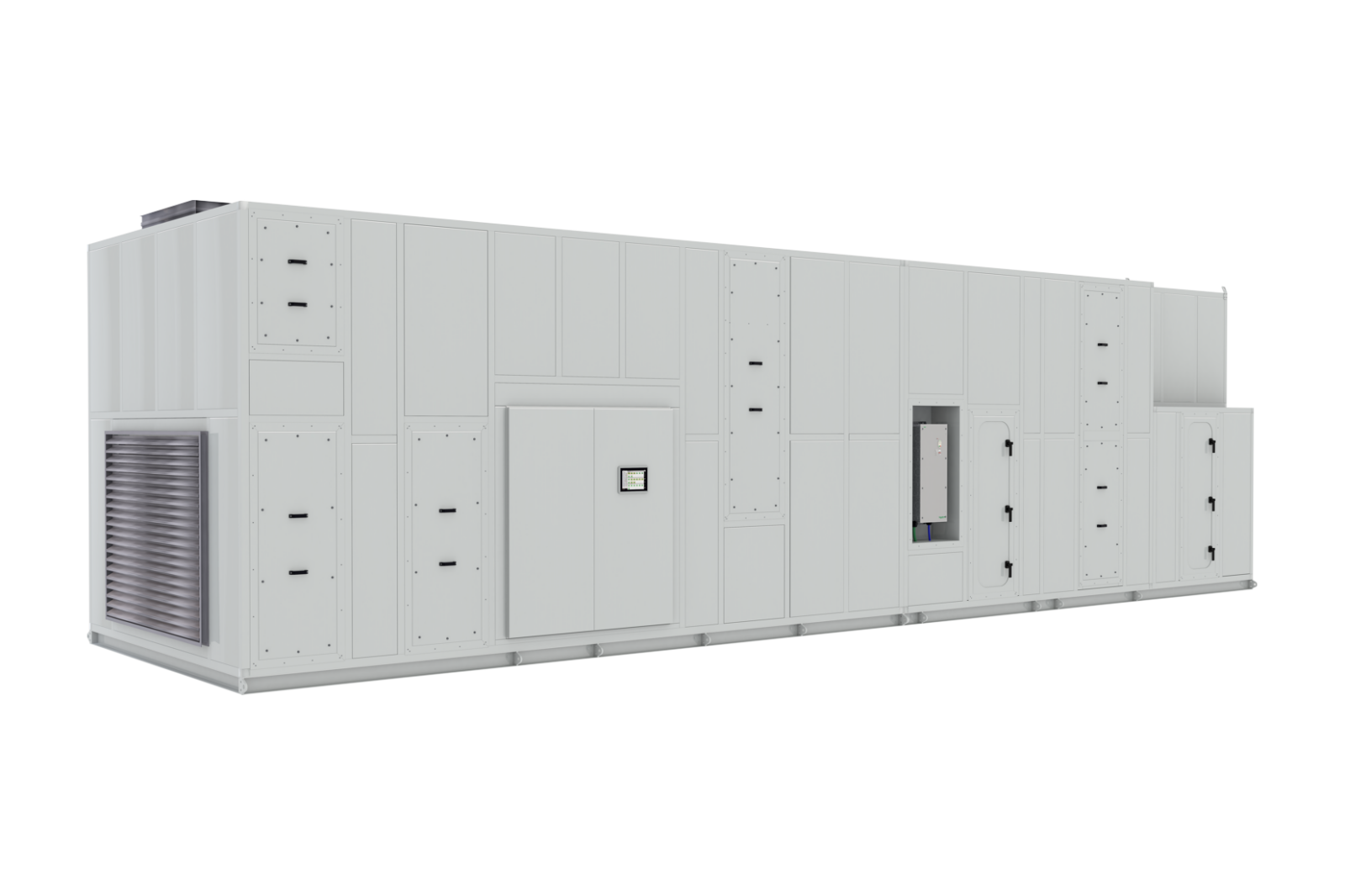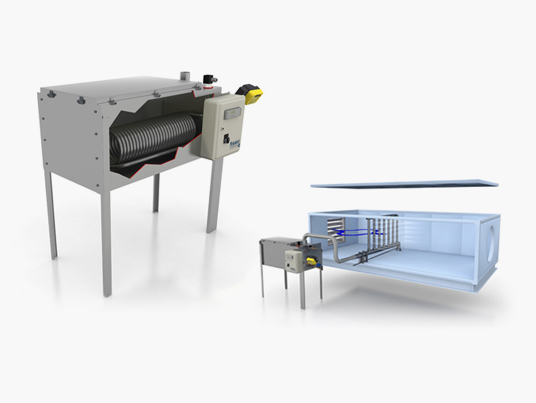-
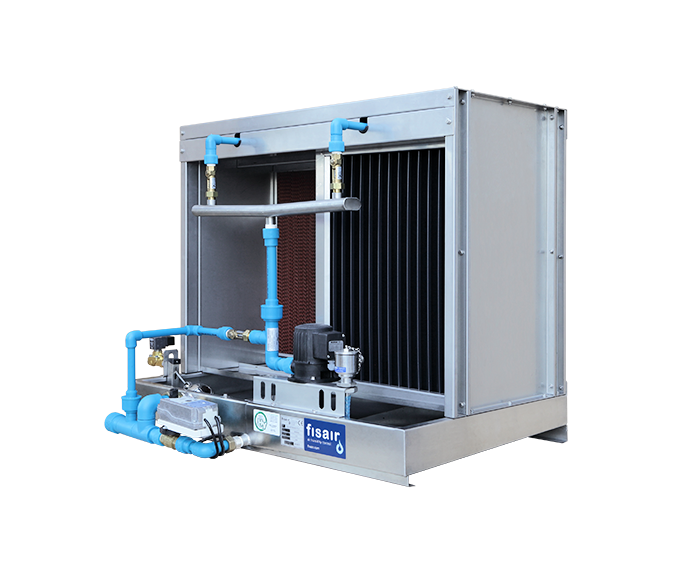 The most hygienic and efficient.Contact panel evaporative humidifiers, with the best performance on the market for efficiency at lower pressure drop and certified hygiene.
The most hygienic and efficient.Contact panel evaporative humidifiers, with the best performance on the market for efficiency at lower pressure drop and certified hygiene. -
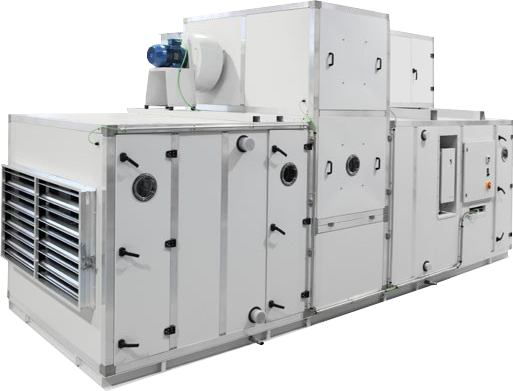 Flexible modular range.Adaptable to specific solutions. Highly reliable equipment with drying capacities from 51 to 152 kg/h and dry air flow rates from 7,500 to 24,000 m3/h.
Flexible modular range.Adaptable to specific solutions. Highly reliable equipment with drying capacities from 51 to 152 kg/h and dry air flow rates from 7,500 to 24,000 m3/h. -
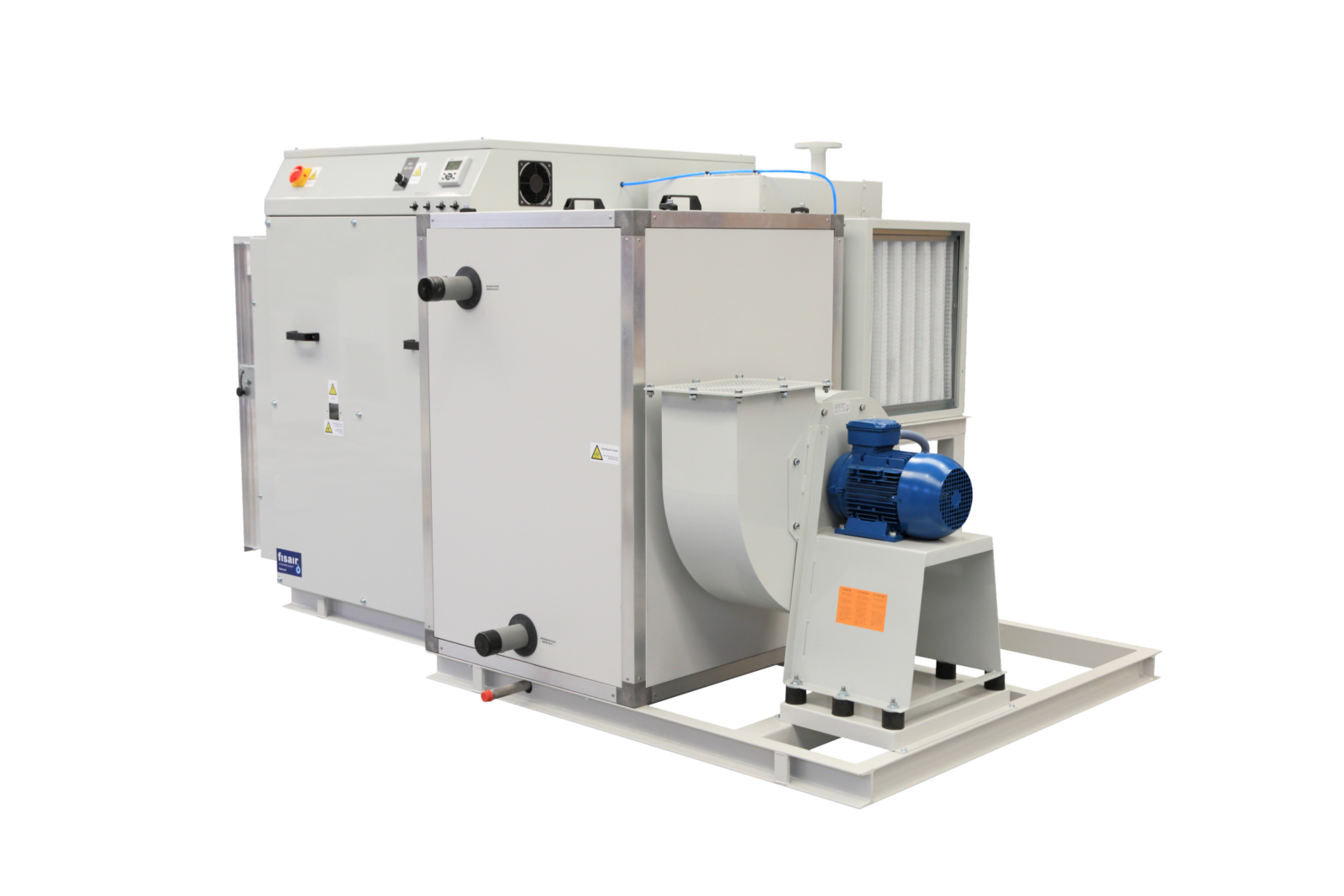 A wide range of Solutions. Highly reliable units with drying capacities from 4 to 42 kg/h and dry air flows from 450 to 6.000 m3/h.
A wide range of Solutions. Highly reliable units with drying capacities from 4 to 42 kg/h and dry air flows from 450 to 6.000 m3/h. -
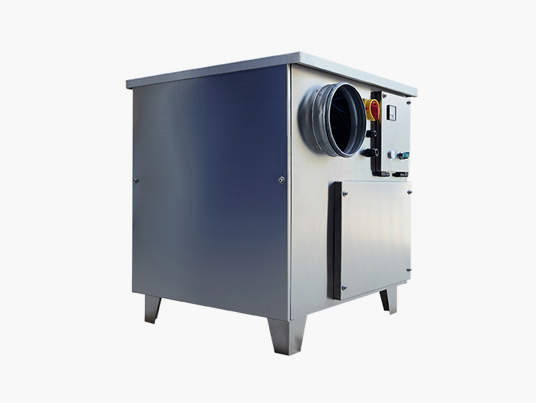 The compact solution. The B series made from stainless steel provides a range of highly compact, robust and portable dehumidifiers for use in the most demanding applications while meeting high reliability and low energy consumption needs.
The compact solution. The B series made from stainless steel provides a range of highly compact, robust and portable dehumidifiers for use in the most demanding applications while meeting high reliability and low energy consumption needs. -
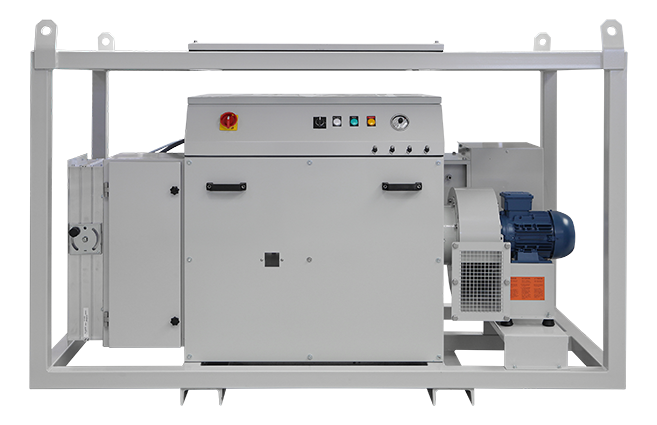 Mobile and heavy duty drying. Series aimed at temporary drying with a robust chassis and finish to protect against corrosion. Ideal for surface treatment and rental applications.
Mobile and heavy duty drying. Series aimed at temporary drying with a robust chassis and finish to protect against corrosion. Ideal for surface treatment and rental applications. -
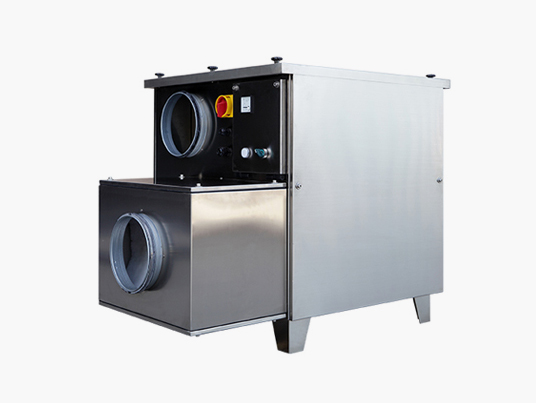 The compact solution. This range completes the B series with an additional fan to increase the specific drying capacity and the available wet air pressure.
The compact solution. This range completes the B series with an additional fan to increase the specific drying capacity and the available wet air pressure. -
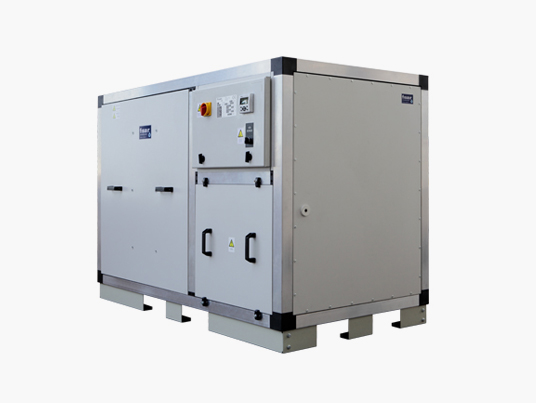 Ice-free energy lossless. Units designed to reduce humidity in refrigerated areas and proceses. Leader in its field in terms of its thermal insulation, robust design and energy efficiency.
Ice-free energy lossless. Units designed to reduce humidity in refrigerated areas and proceses. Leader in its field in terms of its thermal insulation, robust design and energy efficiency. -
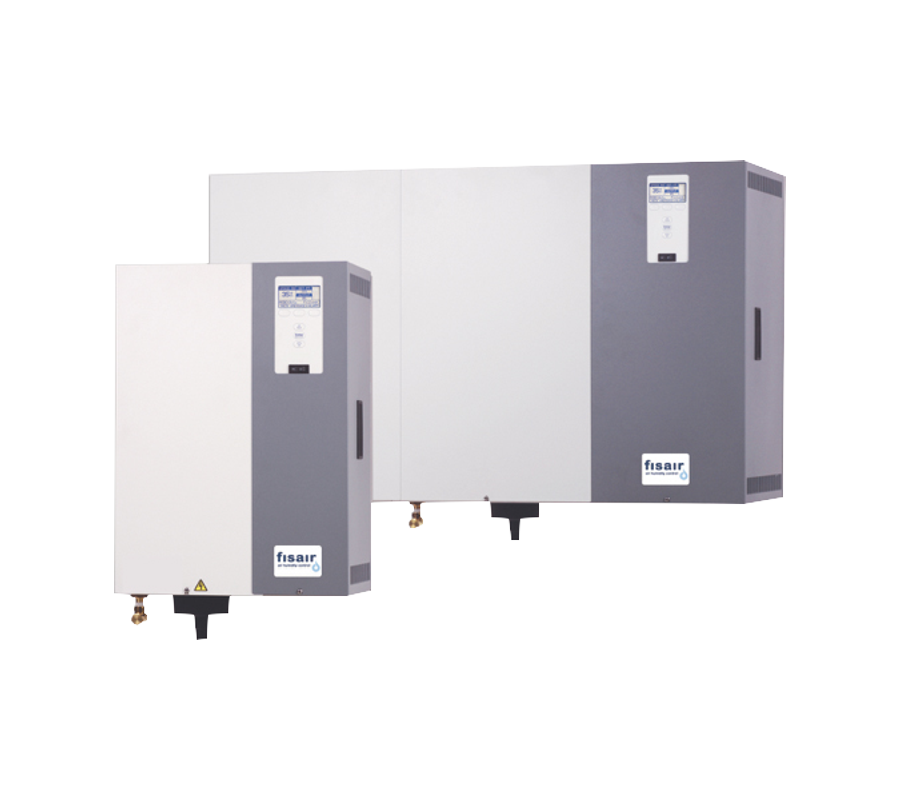 Isothermal self-producer steam humidifiers by submerged electrodes; resistant, compact, economic and precise. It has a stainless steel chassis, controller and wide selection of dispersion systems in accordance with the absorption distance.
Isothermal self-producer steam humidifiers by submerged electrodes; resistant, compact, economic and precise. It has a stainless steel chassis, controller and wide selection of dispersion systems in accordance with the absorption distance. -
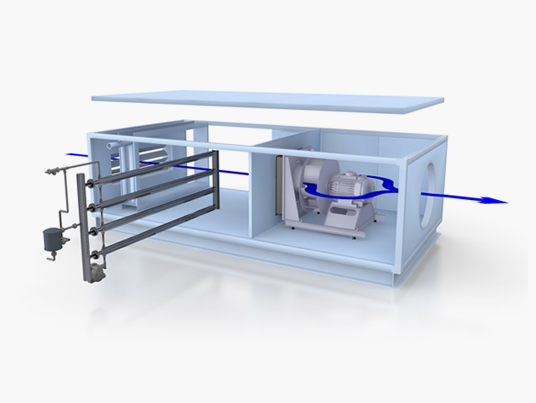 Steam injection humidifiers system designed for work with pressurized boiler steam, with double jacketed piping and steam separator. Air humidification systems.
Steam injection humidifiers system designed for work with pressurized boiler steam, with double jacketed piping and steam separator. Air humidification systems. -
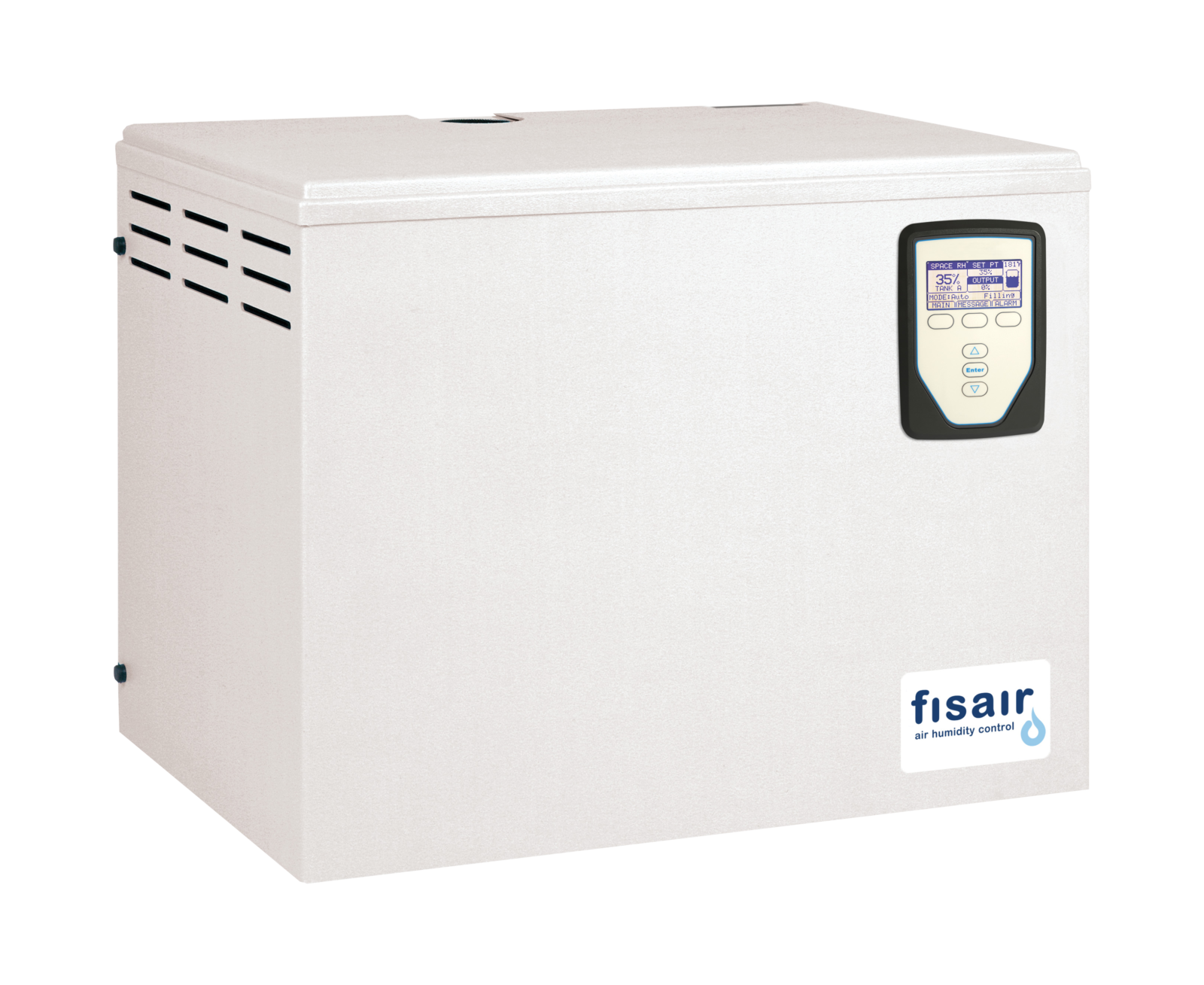 Electric heater isothermal sefl-generating steam humidifiers. Similar to the electrode option but used for any supply water quality. Proportional control.
Electric heater isothermal sefl-generating steam humidifiers. Similar to the electrode option but used for any supply water quality. Proportional control. -
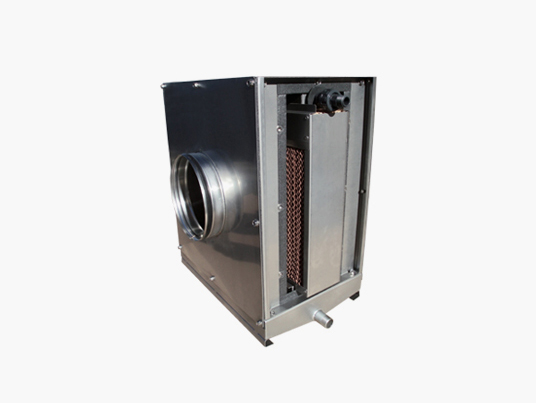 Low height solution The hygienic range for reduced heights enables the use of these systems in false ceilings in commercial premises or offices.
Low height solution The hygienic range for reduced heights enables the use of these systems in false ceilings in commercial premises or offices. -
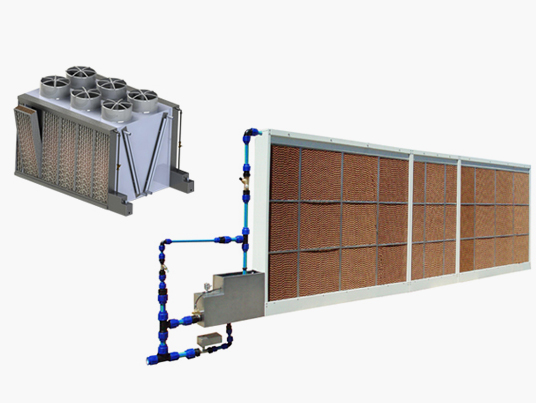 Most hygienic and efficient. Contact panel evaporative humidifiers, with the best performance on the market for lower pressure drop efficiency and certified hygiene. Contact panel evaporative humidifiers, with the best performance in the market for lower pressure drop efficiency and certified hygiene.
Most hygienic and efficient. Contact panel evaporative humidifiers, with the best performance on the market for lower pressure drop efficiency and certified hygiene. Contact panel evaporative humidifiers, with the best performance in the market for lower pressure drop efficiency and certified hygiene. -
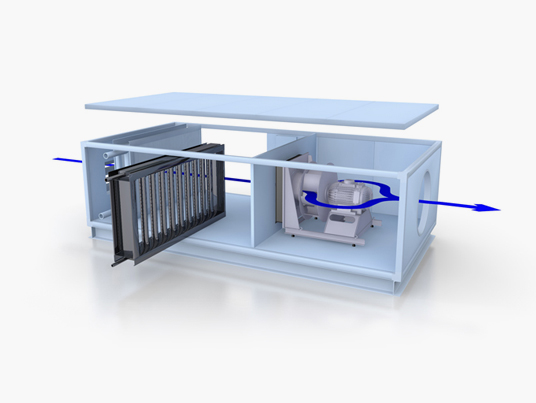 Steam injection/dispersion system for working with pressurised boiler steam or unpressurised steam generated by isothermal steam humidifiers.
Steam injection/dispersion system for working with pressurised boiler steam or unpressurised steam generated by isothermal steam humidifiers.
Hygroscopic products require moisture control to prevent deterioration or modification of their structure. This is best achieved using desiccant dehumidification which will ensure the air is kept below 20% RH with no difficulty, either in the process or in the room where the work area is located.
Our dehumidifiers give continuous air production, to create safe and stable environments, with minimum energy requirements.



